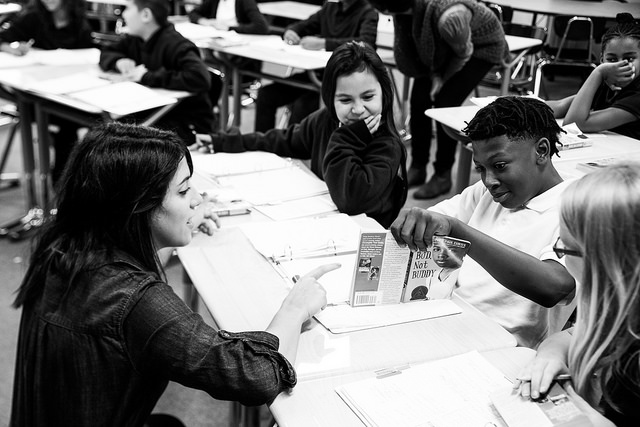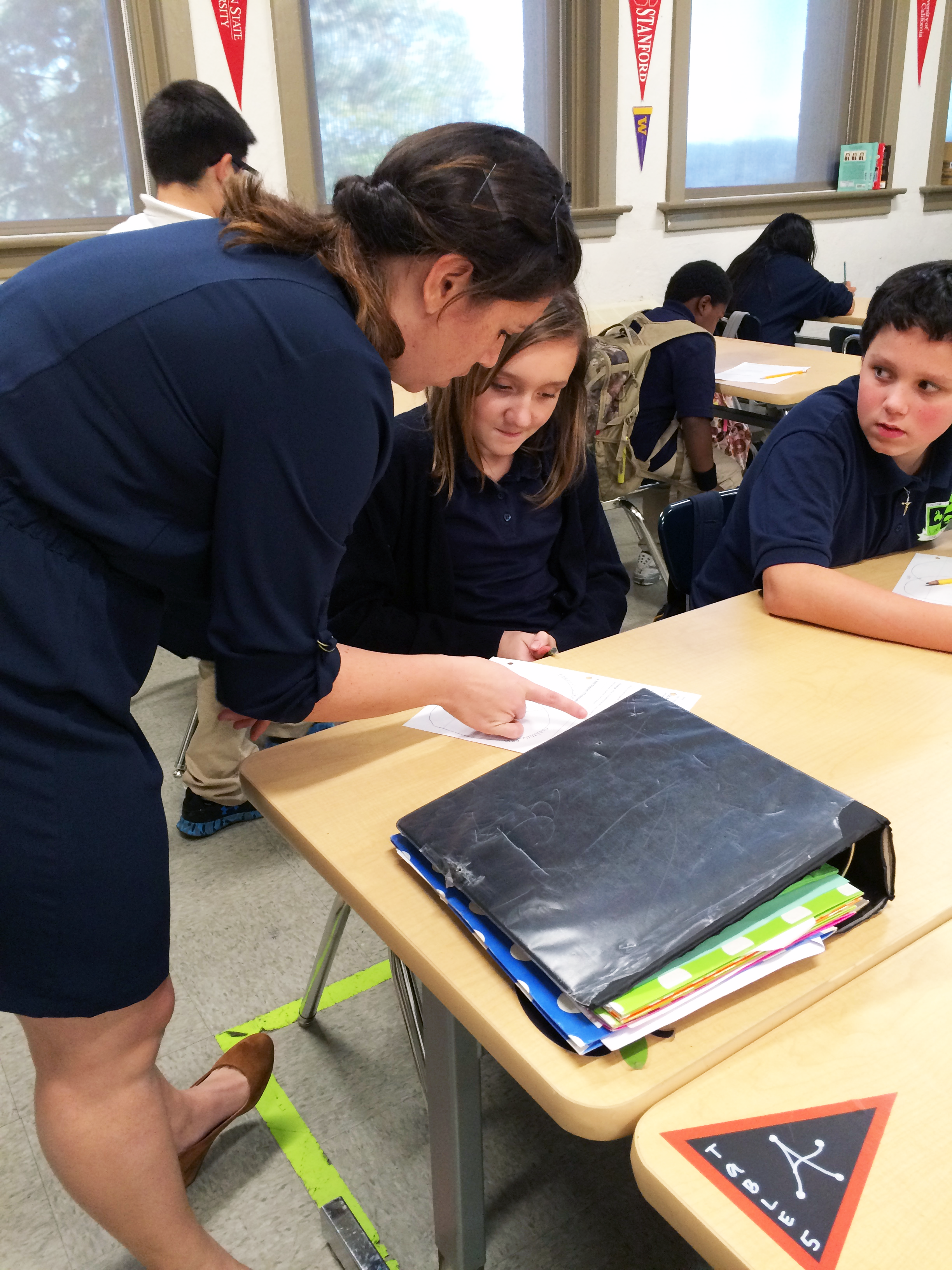More than Textbooks: Preparing Students to Lead in a Complex World

In our ever-changing and interconnected world, rife with injustice and disparate opportunities across lines of race, class, and gender, students must learn the skills to process and respond effectively. Social studies must be, therefore, an area where students can engage with current and historical events in a critical, just, and open-minded manner. At Green Dot Public Schools, the social studies classroom is not one where stoic lectures about history and traditional textbooks do the thinking for students.
Students in Green Dot’s South Seattle and Eastside Tacoma middle schools are diving head first into a curriculum that focuses on helping them become leaders in an increasingly complex world. They learn from more than just their textbooks. Students delve into novels such as I Am Malala; Bud, Not Buddy; The Odyssey; and Blood on the River. These notable works are included in the English Language Arts (ELA) and Social Studies curriculum in order to provide students with critical perspectives on our shared history that often aren’t covered in standard history narratives.
For instance, in Bud, Not Buddy, students learn about the Great Depression through the eyes of Bud, a young African American boy living through the Depression in Flint, Michigan. And they read about the Taliban occupation of Pakistan from girls’ education activist Malala Yousafzai. These books provide students with additional context necessary to fully understand major events, and their inclusion in the ELA units is just one small example of Green Dot’s commitment to integrating diverse perspectives and social justice narratives in its curriculum across the board. While social justice can mean different things depending on the context and community, at Green Dot, it means equipping students to employ their agency and the power of their voice.
Switching Lenses
Sunny Sinco, a Greater Seattle native and Instructional Lead Teacher at Destiny Middle School, helped build the Social Studies portion of the curriculum. The Stanford-inspired social justice focus aims to give students critical thinking tools needed to analyze relevant issues, join community conversations, and provide informed solutions.

In every lesson, students are asked to challenge their own beliefs and use historical analysis to answer one central question: What is our responsibility as community members with respect to a social issue, whether or not we feel its direct effects?
Sinco wants her students to find greater meaning in what they learn from her class so that they might find greater understanding in each other. “What I want is for students to draw on history and the experiences of others in the room and use what they learn to academically, rigorously, thoughtfully deal with social issues in an empathetic way.”
The curriculum is based on the idea of a global community—that today’s issues are undeniably intertwined in a way that makes them relevant, no matter how far or near a person may be to the issue.
“The whole point of our social justice curriculum is to open students’ eyes,” says Rainier Valley Leadership Academy’s ELA teacher Dr. Meaghan Anderson. “Our understanding of the same situation depends on the lens through which we view it. When our students learn about the effect of colonization on present-day African countries, we ask ourselves: Why is the story centered around the colonizer? How would the story be different if we viewed it through the eyes of an indigenous individual?”
Close to Home
Students also learn about social issues close to home. For example, students recently learned about redlining – the practice of denying loans and mortgages, and sometimes other services, in certain neighborhoods based on ethnic or racial composition, reflected in the historical housing policies in both Tacoma and Seattle. Students were introduced to this policy in order to help them better understand contemporary structural and systemic inequities.
Students also compared that policy to similar ones in Chicago to better grasp the issue outside the limits of what they may be familiar with. “So much of it comes down to being entrenched in our beliefs and values and failing to see beyond them,” Sinco notes. “Social Studies classrooms should be in constant dialogue about community issues so that we can see beyond our beliefs and move past our comfort zones.”
As the curriculum continues to develop, Sinco has received strong support from parents and the surrounding community who have even volunteered to provide her with additional resources to help craft lesson plans.
“Parents don’t just set the standard for high-quality work—they are also great resources. I was happy to work with a parent who had a PhD in race and ethnic studies. She helped me think through my lesson plan for colonialism and the Rwandan genocide. Because of her, I was able to give students a comprehensive, culturally sensitive lesson on Rwanda and help them understand its effect on today’s world.”

Ultimately, Sinco wants to inspire other public schools to challenge how they teach new skills through their curriculums and provide students with more opportunities to see a bigger picture in what they learn. “This curriculum is skills-driven, first and foremost, and content-driven second. At the end of the day, I want students to be able to construct a reasonable evidence-based argument, alongside their prior beliefs and values, and actively engage with the issues that affect their communities most. In an evolving, intertwined world, we have a responsibility to contribute, and this is our way of making sure our students are ready.”

